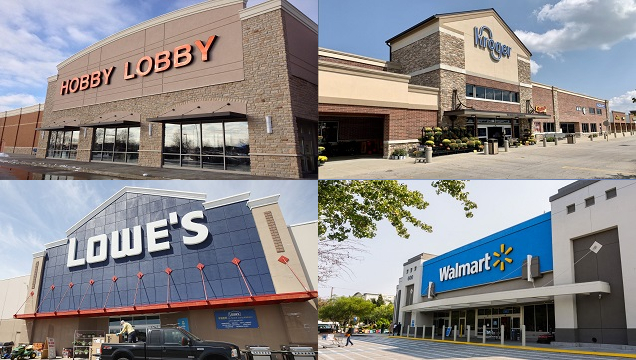
Cap Rates For Net Lease Retail, Industrial Properties Rise

The Boulder Group, Wilmette, Ill., reported single-tenant net lease cap rates rose slightly in the second quarter after hitting record low levels in early 2021.
Single-tenant retail cap rates increased 11 basis points to 6.02 percent while industrial increased 18 basis points to 6.89 percent, Boulder said in its Net Lease Research Report. Office cap rates remained unchanged.
“Following a quarter of historic pricing for the net lease sector, owners of lower-quality assets brought properties to the market in attempt to take advantage of current cap rate levels,” said Randy Blankstein, President of The Boulder Group. “The increased concentration of lower-quality assets was the primary contributing factor for the rise in cap rates.”
Despite a nearly 3 percent decrease in the supply of net lease assets, lower-quality assets with short-term leases and less desirable tenant credits made up a larger concentration of the market in the second quarter, said Jimmy Goodman, Partner with The Boulder Group.
“The supply of assets with long-term leases to credit tenants remains limited,” Goodman said. He said less than one-quarter of the property supply had long-term (15-plus years) leases.
The report said the demand for assets generally considered higher quality, including McDonald’s, 7-Eleven and CVS properties, significantly outweighs the supply, creating an “extremely competitive” market for these properties. “Accordingly, cap rate compression for these assets exists in the current market,” it said.
The bid-ask spread for net lease retail and industrial assets decreased by 2 and 4 basis points respectively in the second quarter, the report said.
“Significant competition for a limited amount of assets is causing some investors to seek alternatives in net lease,” said John Feeney, Senior Vice President with The Boulder Group. “In a search for yield, some net lease investors have shifted focus to categories that weren’t previously in as high of demand including daycares and tenants such as Rite-Aid [drug stores].”
The increased demand for net lease assets has boosted liquidity for more speculative assets, the report said. It forecast net lease sector transaction activity will remain active at least through 2021. “The industry will pay careful attention to any potential tax code changes including the 1031 exchange proposed by the current administration and its potential impact on real estate and strategies moving forward,” the report said. It noted investors will carefully monitor assets classes that suffered during the pandemic, including gyms and movie theaters.
“The supply pipeline will determine if transaction volume will outpace 2020 or even the high-water mark of 2019,” Blankstein said.
